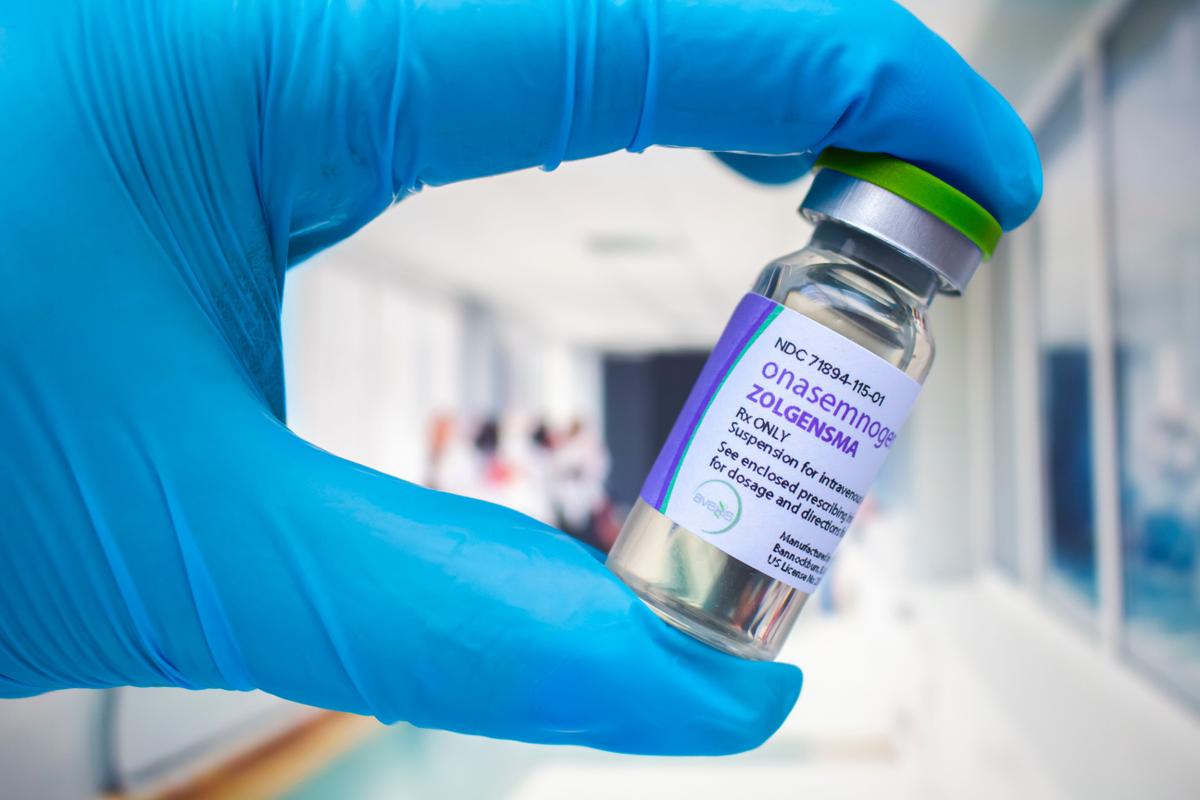Advanced gene therapy
Since 1 December 2021 the gene therapy for the treatment of SMA, Zolgensma®, is reimbursed for a part of the patients: children with the most severy type, SMA type 1 and children presymptomatically detected by neonatal screening. In July, doctors at UZ Leuven treated a first patient with the commercial product.
Prof. dr. Liesbeth De Waele, paediatric neurologist with an expertise in neuromuscular disorders in children: “Zolgensma® is one of the newer and more advanced products that have a considerable impact on the quality of life and life expectancy of children with SMA. We have already treated several patients with Zolgensma®, but this was always within the framework of a clinical study. It is the first time that a patient at UZ Leuven was treated with the commercially available, reimbursed product. The treatment went smoothly and the patient is doing very well.”
Neonatal screening
Since December 2022 new born babies in Flanders are also being screened for SMA via the heel prick test. If the disease is diagnosed at that point, often before there are any clinical symptoms, treatment can be started quickly, preventing irreversible damage to motor neurons, and making sure that the majority of patients can have normal motor development.
Prof. dr. De Waele: “We are obviously very pleased that there now also is a neonatal screening for SMA in Flanders. In case of a positive screening Bij een positieve screening, everything is put at work to start treating the patient as soon as possible, because every hour counts. Studies have shown that, for presymptomatic treatment, the results with Zolgensma® are spectacular: a large part of the children will, depending on the genotype, have normal motor development after the treatment. This expensive product can only show its maximum efficacy when administered in that very early stage.”
Later stage
Also in a later stage, when there are already symptoms, as was the case for the baby that was treated at UZ Leuven, the medication has a large impact. By preventing the further decay of motor neurones, Zolgensma® stabilises the disorder and allows the further motor development to continue to a certain extent.
The follow-up of children treated with Zolgensma® is currently still limited, as the medication has only recently put on the market. As a result, no statements can yet be made about the long-term effect of the drug. Furthermore it is important to remark that Zolgensma® cannot cure SMA completely. Attention for any additional supporting multidisciplinary care remains important, also after the treatment.
